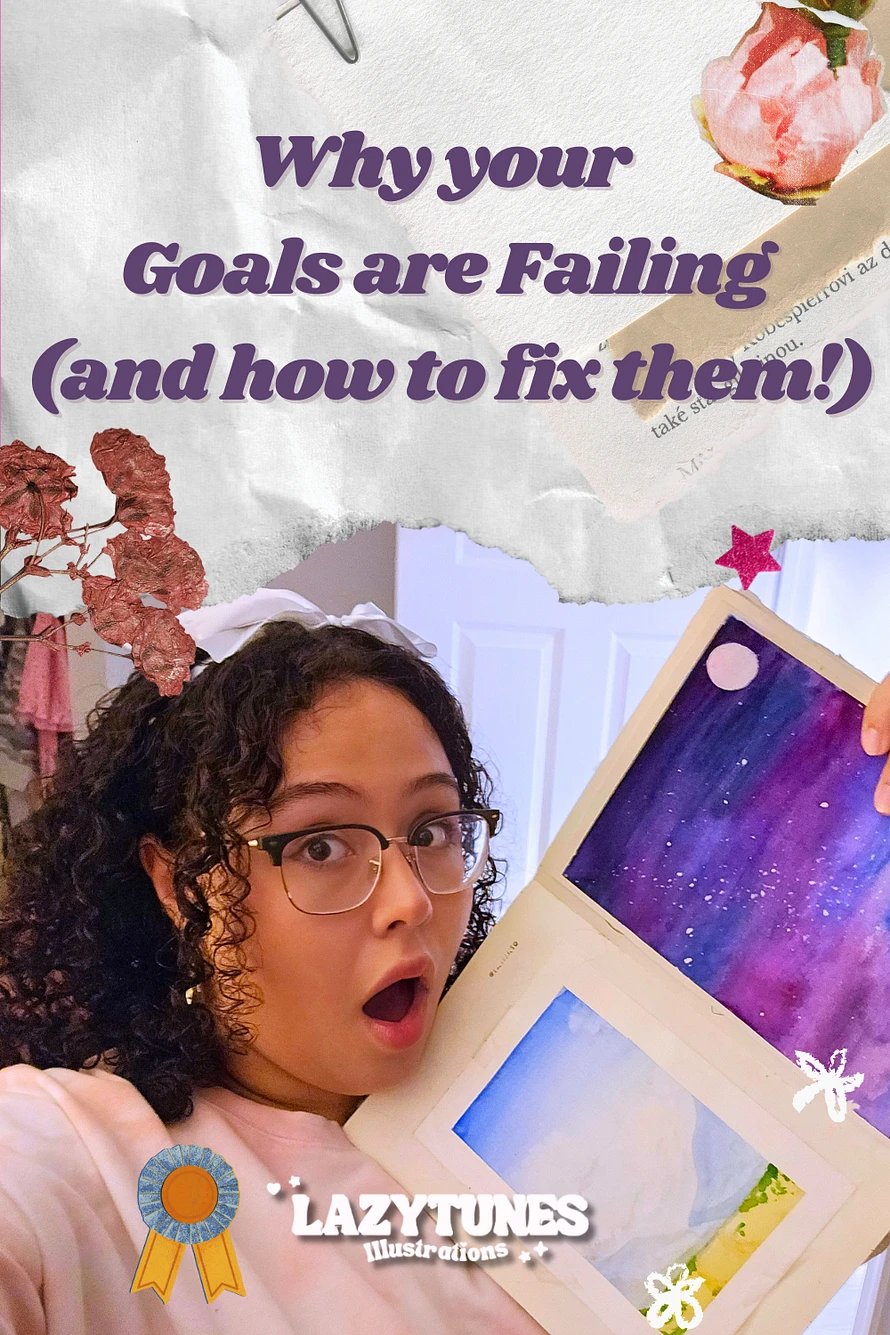Why our Goals are Failing (and how to fix them!)
Introduction: Turning Resolutions into Realities
Before we start, this blog is a text version of my YouTube video linked here if you'd like to watch it! Click me!
"New year, new me!" It's a mantra many of us embrace each January. Yet, as the weeks roll by, maintaining those resolutions can become challenging. If you've found yourself drifting from your goals, don't worry—it's never too late to reset and refocus <3
Enter SMART goals—a proven framework designed to help you set objectives that are clear, attainable, and aligned with your aspirations. Let's delve into how you can apply this method to make 2025 your most productive year yet!
What Are SMART Goals?
SMART is an acronym that stands for:
-
Specific
-
Measurable
-
Achievable
-
Relevant
-
Time-bound
This structured approach ensures your goals are well-defined and within reach. Let's explore each component in detail.
S – Specific: Define Your Goal Clearly
A specific goal answers the questions: Who? What? Where? When? Why? Instead of vague intentions like "I want to improve my business," aim for clarity. For example:
"Increase traffic to my online store by consistently updating product listings and promoting through YouTube marketing."
Avoid ambiguous terms like "improve" or "increase." Opt for action-oriented verbs such as "write," "update," or "create" to provide clear direction.
M – Measurable: Track Your Progress
Establish criteria to measure your progress. Ask yourself: What actions can I take that are trackable and within my control? For instance:
"Upload two videos per month to YouTube and add ten new products to my shop this year."
Setting measurable steps allows you to monitor your progress and stay motivated.
A – Achievable: Set Realistic Expectations
While ambition is admirable, it's essential to set goals that are attainable given your current resources and constraints. Reflect on:
-
Is this goal within my control?
-
Do I have the necessary skills and resources?
-
If not, how can I acquire them?
For example, aiming to upload two videos monthly and create ten new products annually is realistic. However, attempting daily TikTok posts, bi-weekly YouTube videos, and launching 50 new products might be overwhelming.
R – Relevant: Align with Your Broader Goals
Ensure your goals align with your broader life and career objectives. Consider:
-
Does this goal fit with my current commitments?
-
Is it the right time to pursue this?
-
Will it contribute meaningfully to my long-term plans?
For instance, launching a time-intensive coaching business might not be feasible if you're already juggling multiple jobs.
T – Time-bound: Set a Deadline
Assign a clear timeframe to your goals to instill a sense of urgency and focus. Ask yourself:
-
What can I accomplish today?
-
Where should I be in six weeks?
-
What are my objectives for the next six months?
Example timeline:
-
Today: Work on this blog post and design my "Strawberry Milk" themed sticker sheet.
-
Next 6 Weeks: Publish additional videos and complete the second product of the year—my first children's book.
-
Next 6 Months: Analyze video performance and identify top-selling shop items to refine strategies.
Setting deadlines helps maintain momentum and provides checkpoints to assess progress.
Conclusion: Embrace SMART Goals for Lasting Success
Transitioning from fleeting resolutions to sustained achievements requires a structured approach. By adopting the SMART framework, you equip yourself with the tools to set clear, attainable, and meaningful goals.
Remember, it's not about perfection but progress. Start today, stay consistent, and watch as your aspirations transform into accomplishments.
I made a free template of questions to ask yourself that can be downloaded from my shop!
FAQs
Q1: What if I miss a milestone in my SMART goal plan?
A1: It's okay to encounter setbacks. Reassess your plan, identify obstacles, and adjust your strategies accordingly. Flexibility is key to long-term success.
Q2: How often should I review my SMART goals?
A2: Regularly—consider weekly check-ins to monitor progress and make necessary adjustments. (As someone who gets distracted easily, trust me on this!) Make sure you're also checking if you still align with your goals!!!
Q3: Can SMART goals be applied to personal development?
A3: Absolutely. SMART goals are versatile and can be tailored to various aspects of life, including personal growth, health, and relationships.

